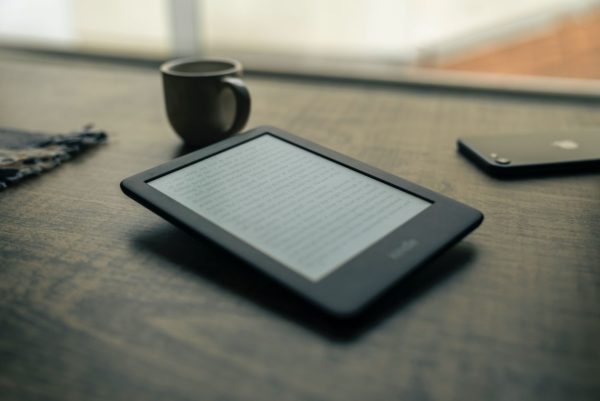On April 3rd, 1995, the first-ever online book order was placed on an unknown website called Amazon.com. Little did anyone realize the imminent revolution in digital reading and learning. Now, we have instant access to books, carrying thousands of them on a tiny device. The measurement of books has shifted from pages to bytes. We can even listen to books without assistance. Publishing a book has become effortless, and machines recommend the best reads. Welcome to the digital reading ecosystem.
As the industry transitioned from print media to digital content, some companies emerged as winners, while established ones struggled to stay relevant. Logically, e-books’ popularity will continue to increase. But how does digital reading affect the whole world? Now this is a more interesting question.

The Benefits of the Rise of eBooks
As the popularity and sales of books decline, eBooks emerge as a viable alternative that is on the rise. eBooks possess multiple advantages over traditional books, including:
- The Convenience and Accessibility of eBooks: Downloading, storing, and accessing eBooks is possible anytime and anywhere with an internet connection. They can also be synchronized across various devices and platforms. Easily searchable, bookmarkable, highlightable, and annotatable, eBooks eliminate the need for physical space and weight.
- The Affordability and Variety of eBooks: Compared to books, eBooks are often more affordable, particularly when it comes to new releases or niche genres. Promotions, subscriptions, or libraries also offer free or discounted eBook options. Furthermore, eBooks provide a broader range of choices and genres by incorporating multimedia elements, interactive features, and user-generated content.
- The Environmental Friendliness of eBooks: Books require no paper, ink, or other materials for production. Additionally, they produce zero waste or emissions during transportation or disposal. Based on recent research, reading an eBook instead of a physical book can save up to 7.5 kg of CO2 equivalent emissions, 168 liters of water, and 23 kg of wood.
We see reading apps increasing their presence in the reading and e-reading space. Services like Fiction Me offer what paper books can’t, like accessibility and simplicity. You can read an online novel at any time and you do not depend on whether you planned this reading or the thought came spontaneously. Just take out your smartphone and the fiction story will be in front of your face. It’s hard to deny the benefits of this approach.
Difficulties and Challenges for E-Books
However, eBooks also encounter several challenges and limitations, including:
- The quality and compatibility of eBooks may differ based on the format, device, software, or publisher. These variations can lead to technical issues like glitches, errors, or compatibility problems. Additionally, eBooks can face digital rights management (DRM) restrictions that limit their use, sharing, or copying.
- The experience and preference of eBooks may lack the tactile and aesthetic appeal of printed books. We all love paper books for their scent, texture, or appearance of paper. Reading eBooks could also lead to eye strain, headaches, or fatigue due to screen glare or backlight. Moreover, some individuals may have a preference provided by eBooks.
- Safety. The security and privacy of eBooks can be at risk of hacking, piracy, or malware attacks. Furthermore, they can expose users’ personal data or reading habits to third parties, including publishers, advertisers, or governments.
It is also worth mentioning the change in the complexity of creating and producing books. Now there are AI novel generators that help you create and publish books much faster. While there are still debates regarding copyright and how to judge AI works, it is still art. You can even create a good book yourself in collaboration with AI. The more human hands you add, the deeper and more impactful the piece will be.
Transition to Digital Reading – Loss or Gain?
The publishing industry and society as a whole suffer from various negative effects due to the decline of books. These effects include the loss of diversity and quality of available books. Publishers now prioritize producing bestsellers and mainstream genres that cater to a larger audience, thereby reducing the variety and excellence in the market. Additionally, this decline hammers the opportunities for new authors, particularly those from marginalized or underrepresented groups.
This is only one side, because in fact, publishing houses are not losing, but simply switching to digital format. Small authors get the opportunity to independently present books to the public through separate platforms. The quality of content directly depends on the author, and not on the format of distribution or reading. Therefore, it would be wrong to say that we have lost something with the transition to digital reading.
Conclusion
Ebooks have definitely cannibalized print publications, but the traditional publishing industry has embraced digital publishing, enabling publishers to adapt and maintain business continuity. Authors, whether publishing in print or ebook format, still rely on publishers for book design and marketing, which constitutes a significant portion of publishing costs. Nevertheless, power is shifting from big publishers to self-publishers and indie publishers.
This shift from print to digital is not limited to books alone; newspapers and magazines are also experiencing the same transition. In 2016, The Independent, a UK national newspaper, became entirely digital. The digital world has revolutionized the reading experience, giving rise to innovative concepts like Audible, Goodreads, and KDP. One can only wonder what the future holds to make reading even more convenient, efficient, connected, and fun – a favorite pastime for many.
 Gearfuse Technology, Science, Culture & More
Gearfuse Technology, Science, Culture & More


